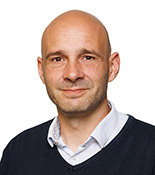
Clement Blanchet
EMBL Hamburg
Germany
EMBL Course
Applications only available for the virtual module
This course consists of two parts: a virtual module and an on-site module.
The series of online lectures will take place from 6 – 10 October 2025. In addition to this, a small number of selected students that have completed the virtual module will be offered to take part in the practical component of this course that will take place in Hamburg from 17 – 21 November 2025. For the other students we will offer the possibility to collect data remotely.
We encourage advanced PhD students, postdocs and junior researchers to apply.
The virtual module lectures will cover the basics of SAXS/SANS, instrumentation, data collection, modelling techniques and complementary use with other methods. A self-paced practical tutorial accompanied with a SASQUEST challenge will be provided and all students are encourage to participate in these exercises. The material will cover basic and advanced SAXS data processing steps.
In the on-site module, there will be 2 tracks offered focusing on different aspects of SAXS data collection. Applicants will be able to select a preferred track during motivation letter submission.
Students that are not taking part in the on-site module will be able to sign-up for small online discussion groups. These discussion groups will be led by one of the course speakers/tutors and you will be given the chance to discuss your own data/SAXS experiments with your peers.
The course is aimed at young biochemists/biophysicists and researchers active in related structural methods with little or no experience in solution scattering.
The virtual module is aimed at early career scientists interested in expanding their knowledge in SAXS.
On-site track 1: X-ray beamline operation is aimed at advanced pre-docs/early-stage postdocs interested in working with synchrotron radiation and technical aspects of scattering experiments. During the practical, you will learn different steps for commissioning and calibrating a beamline, how to streamline workflows, and what to consider for data collection and management.
On-site track 2: sample preparation and optimization for SAXS is aimed at pre-doctoral and postdoctoral fellows with a background and/or an interest in biochemistry. In this track, we will be looking at best practices in sample preparation and data collection as well as various tools for data quality assessment. Students are encouraged to bring their own samples.
During the virtual module of the course, we will take a look at all essential steps of SAXS data analysis, from applying for beamtime, collecting, processing, and analysing SAXS data, as well as proper reporting and quality assessment.
At the on-site module, deeper insights into beamline operation or optimization of measurements can be gained.
“Participating in the EMBL course on “Solution Scattering from Biological Macromolecules” was a delightful experience, with its intimate setting enabling personalized discussions and the well-organized workshop offering ample opportunities for in-depth conversations and data analysis support. Meeting the BioSAXS group was a particular highlight, as their expertise and approachability made the entire experience both educational and enjoyable.” – Jaka Snoj, Department of Synthetic Biology and Immunology, National Institute of Chemistry, Ljubljana, Slovenia
“At the EMBL course, a distinguished team of experts and beamline scientists provides an invaluable toolbox for SAXS data analysis. From Ab initio to Hybrid models, this comprehensive course offers a unique opportunity for both newcomers to scattering and individuals like myself, who have recently ventured into the study of biomacromolecules through scattering techniques.” – Davide Schirone, Malmö University, Sweden

EMBL Hamburg
Germany

Lund University
Sweden
Postnova
Germany
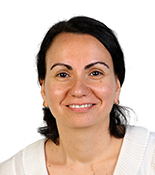
EMBL Hamburg
Germany
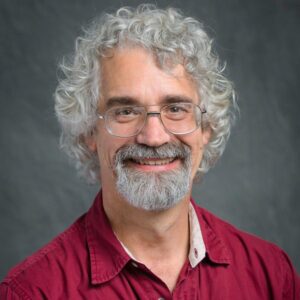
Cornell University
USA
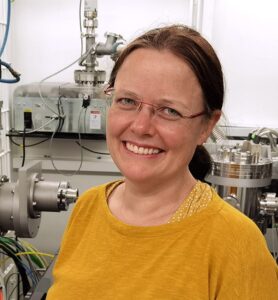
EMBL Hamburg
Germany
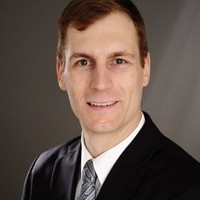
BIOSAXS
Germany
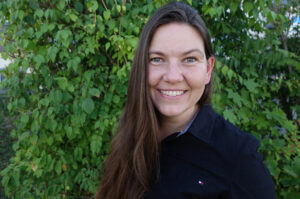
Friedrich Schiller University Jena
Germany

EMBL Hamburg
Germany

Newcastle University
UK
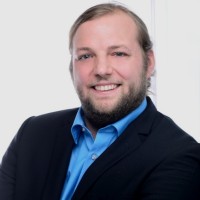
DESY / CSSB
Germany
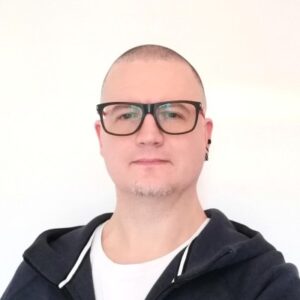
Xenocs
Germany
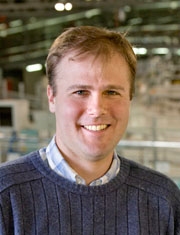
Australian Synchrotron
Australia
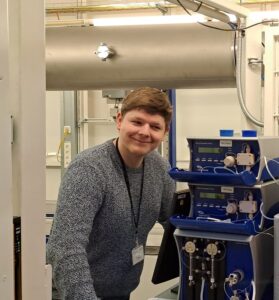
University of Mainz
Germany
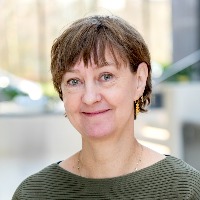
University of Copenhagen
Denmark
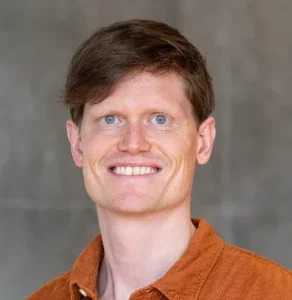
University of Copenhagen
Denmark
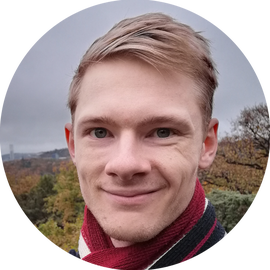
University of Saarland
Germany

CSSB Hamburg
Germany
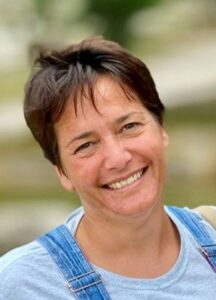
Institut Laue-Langevin
France
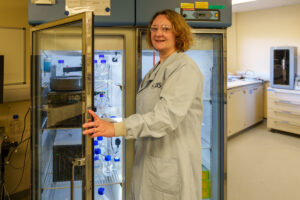
ISIS Neutron and Muon Source
UK

Postnova
Germany

EMBL Hamburg
Germany
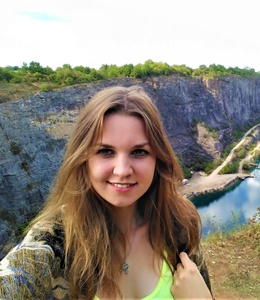
University of Milan
Italy
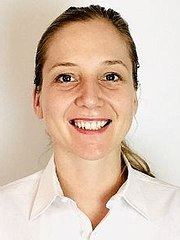
CSSB
Germany
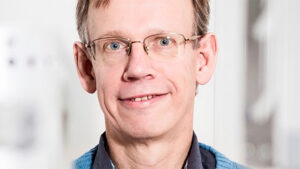
Aarhus University
Denmark
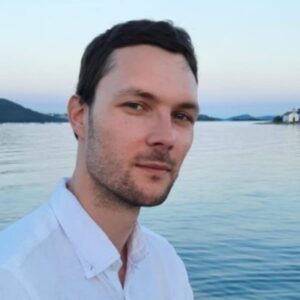
National Institute of Chemistry
Slovenia
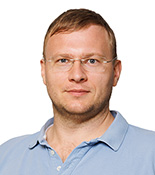
EMBL Hamburg
Germany

EMBL Hamburg
Germany
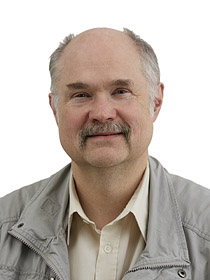
BIOSAXS
Germany

EMBL Hamburg
Germany
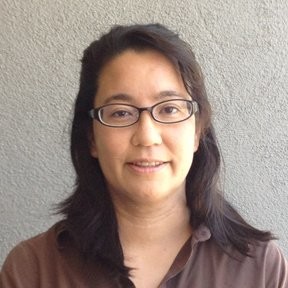
Lawrence Berkeley National Laboratory
USA
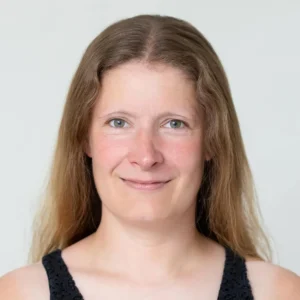
CSSB
Germany
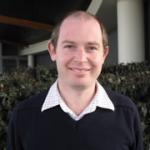
ANSTO
Australia
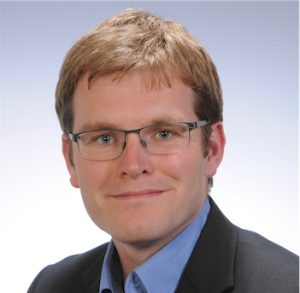
Friedrich Schiller University Jena
Germany

EMBL Hamburg
Germany

EMBL Hamburg
Germany

University of Copenhagen
Denmark

Course and Conference Officer
EMBL Heidelberg
Germany
Are you on social media? Post using EMBLSolutionScattering and don’t forget to tag @EMBLEvents.
| Time (Europe/Berlin) | Speaker |
|---|---|
| 14:00 – 15:00 | Onboarding |
| 14:00 – 14:15 | Welcome and short introduction to the Course material Melissa Graewert – EMBL Hamburg, Germany |
| 14:15 – 15:00 | Demonstration: ATSAS installation and trouble shooting (optional) Tobias Gräwert – BIOSAXS, Germany |
| Time (Europe/Berlin) | Speaker |
|---|---|
| 14:00 – 14:15 | Welcome and introduction to the course Melissa Gräwert – EMBL Hamburg, Germany Clement Blanchet – EMBL Hamburg, Germany Annette Langkilde – University of Copenhagen, Denmark |
| 14:15 – 15:15 | Lecture: Introduction to SAXS Richard Gillian – Cornell University, USA |
| 15:15 – 16:00 | Lecture: Introduction to SANS Anne Martel – Institut Laue-Langevin, France |
| 16:00 – 16:30 | Break |
| 16:30 – 17:30 | Practical Session: Basic data analysis Al Kikhney – Xenocs, Denmark |
| Time (Europe/Berlin) | Speaker |
|---|---|
| 14:00 – 14:05 | Overview of the day |
| 14:05 – 14:50 | Lecture: SAXS Instrumentation Nigel Kirby – Australian Synchrotron, Australia |
| 15:00 – 15:40 | Demonstration: SAXS measurement at P12 Clement Blanchet – EMBL Hamburg, Germany |
| 15:40 – 15:55 | Break |
| 15:55 – 16:35 | Lecture: Combining SAS and spectroscopy to study structure–process–function relationships Cedric Dicko – Lund University, Sweden |
| 16:35 – 17:10 | Demonstration: Planning the SAXS experiment Melissa Gräwert – EMBL Hamburg, Germany |
| 17:10 – 17:30 | Introduction: SAS QUEST (Self Study Tutorial) Melissa Gräwert – EMBL Hamburg, Germany |
| Time (Europe/Berlin) | Speaker |
|---|---|
| 11:30 – 13:30 | Optional Session: Softmater Samples Principles, Pitfalls and Possibilities Timur Tropin, EMBL Hamburg, Germany Data analysis for soft matter Andreas Larsen, University of Copenhagen, Denmark SAXS & Nanoparticles Anastasiia Murmiliuk – Universty of Milan, Italy |
| 13:30 – 14:00 | Break |
| 14:00 – 14:05 | Overview of the day |
| 14:05 – 15:00 | Lecture: Modelling with ATSAS Dmitri Svergun – BIOSAXS, Germany |
| 15:00 – 16:30 | Networking session: Discuss your SAS Data (Flash talks and break out rooms) |
| Ongoing | Video on DEMAND: Practical aspects of hybrid modelling Cy Jeffries – EMBL Hamburg, Germany |
| Time (Europe/Berlin) | Speaker |
|---|---|
| 14:00 – 14:05 | Overview of the day |
| 14:05 – 15:00 | Short Presentations: Challenging samples and complementary methods Moderator: Annette Langkilde – University of Copenhagen, Denmark Presenters and panelists: SAXS on tricky protein samples Christoph Weidemann – University of Jena, Germany SAXS and light scattering for studying lipid nanoparticles Bastian Kolb – University of Mainz, Germany SAXS and mass spectrometry for studying viruses Thomas Kierspel – DESY, Germany |
| 15:00 – 15:40 | Panel Discussion: Practical Approaches to SAXS Experiments |
| 15:40 – 16:00 | Break |
| 16:00 – 16:55 | Short Presentations: SAXS across time and length scales Moderator: Aleksi Sutinen – EMBL Hamburg, Germany Presenters and panelists: SAS to study fibrillation events Annette Langkilde – University of Copenhagen, Denmark Time-resolved SAS for studying ion channels Kesha Josts – Newcastle University, UK |
| 16:55 – 17:30 | Panel Discussion: Beyond Standard Measurements |
| Time (Europe/Berlin) | Speaker |
|---|---|
| 11:00 – 11:45 | Lecture: Standards and Publications Guidelines Andrew Whitten – ANSTO, Australia |
| 11:45 – 13:00 | Update: SAS Quest (software demonstration) |
| 13:00 – 14:00 | Break |
| 14:00 – 14:05 | Overview of the last session |
| 14:05 – 14:25 | Lecture: New Developments Cryo-EM Carolin Seuring – CSSB Hamburg, Germany |
| 14:25 – 14:45 | Lecture: Cryo-EM maps & SAXS Jan Skov Petterson – Aarhus University, Denmark Kristian Lytje – Aarhus University, Denmark |
| 14:45 – 15:25 | Lecture: New Developments in AI Predicted Modelling Karen Manalastas-Cantos – CSSB Hamburg, Germany |
| 15:25 – 15:50 | Break |
| 15:50 – 16:10 | Lecture: SAXS and Computer Predicted Models Susan Tsutakawa – Berkeley National Lab, USA |
| 16:10 – 16:50 | Panel Discussion: Future of Scattering & Course Wrap-up |
Are you on social media? Post using #EMBLSolutionScattering and don’t forget to tag @EMBLEvents.
| Time (Europe/Berlin) | Speaker |
|---|---|
| 10:00 – 11:30 | Welcome and introduction to the course |
| 11:30 – 12:45 | Facility Tour |
| 12:45 – 14:00 | Lunch |
| 14:00 – 16:30 | Practical Unit 1 |
| 16:30 – 17:00 | Coffee Break |
| 17:00 – 18:30 | Networking: Participants Presentations |
| 18:30 – 19:00 | Free Time |
| 18:30 – 20:30 | Dinner |
| Time (Europe/Berlin) | Speaker |
|---|---|
| 09:00 – 09:30 | Morning Coffee |
| 09:30 – 12:00 | Practical Unit 2 |
| 12:00 – 13:00 | Special lecture(s) |
| 13:00 – 14:00 | Lunch |
| 14:00 – 15:00 | Practical Unit 3 |
| 15:00 – 15:30 | Track Exchange |
| 15:30 – 16:00 | Coffee Break |
| 16:00 – 17:30 | Practical Unit 4: Data Collection |
| 17:30 – 18:30 | Free Time |
| 18:30 – 21:00 | Dinner |
| Overnight | Optional: Data collection (automation) |
| Time (Europe/Berlin) | Speaker |
|---|---|
| 09:00 – 09:30 | Morning Coffee |
| 09:30 – 11:30 | Data processing |
| 11:30 – 12:30 | Special lecture(s) |
| 12:30 – 13:30 | Lunch |
| 13:30 – 14:00 | Departure excursion |
| 14:00 – 20:00 | Excursion (EuXFEL) + Dinner |
| 20:00 – 23:00 | Free time (Christmas market) |
| Time (Europe/Berlin) | Speaker |
|---|---|
| 09:00 – 09:30 | Morning Coffee |
| 09:30 – 12:00 | Practical Unit 5: Data Collection |
| 12:00 – 13:00 | Special lecture(s) |
| 13:00 – 14:00 | Lunch |
| 14:00 – 16:30 | Data processing |
| 16:30 – 17:30 | Coffee + Meet & Greet special Guests |
| 17:30 – 18:15 | Panel discussion – Special Guests |
| 18:15 – 18:45 | Free Time |
| 18:45 – 20:45 | Course Dinner with Guests |
| Overnight | Optional: Data collection (automation) |
| Time (Europe/Berlin) | Speaker |
|---|---|
| 09:00 – 09:30 | Morning Coffee |
| 09:30 – 10:45 | Data processing + summary |
| 10:45 – 11:45 | Flash presentations – Course results |
| 11:45 – 12:00 | Course wrap-up |
| 12:00 – 13:00 | Lunch + Departure |
| 13:00 – 14:00 | Optional: EMBL HH lecture |
| Ongoing | Feedback from trainer related to homework |
The number of participants will be limited to 60 virtual participants and 10 participants for the on-site module.
When applying for this course you will have the possibility to apply for only the virtual module or for both virtual and on-site modules. Please note that only students that have completed the virtual module will be taken into consideration in the selection for an on-site module.
Registration fees for the virtual module include access to online lectures and other course materials.
| Academia | €120 |
| PhD Student | €75 |
| Industry | €150 |
Registration fees for the on-site module include accommodation in single rooms at the DESY guesthouse, all meals throughout the duration of the course, and course materials. Travel expenses are NOT covered with the registration fee.
| Academia | €600 |
| PhD Student | €550 |
| Industry | €1000 |
Please note that students selected for the on-site module will have their virtual module registration fee waived and will only have to pay the on-site registration fee.
A letter to support your visa application will be issued, on request, once payment of the registration fee is confirmed.
We recommend that you book your visa appointment as soon as possible, to avoid any delay with your visa application.
The registration fee should be paid only after acceptance to the course. The results will be announced approximately 2-3 weeks after the application deadline.
After you have logged in and successfully registered, you will receive an email asking you to submit your motivation letter. Click on the link provided and enter your motivation letter in the text box provided. Alternatively you can submit your motivation letter by clicking on the link on the confirmation page directly after registering.
Instructions
Please note:
For more detailed information, follow the instructions provided in our video on how to submit a course motivation letter.
For further information about registration and motivation letter submission please refer to the FAQ page.
Limited financial assistance in the form of both registration fee waivers (for virtual module) and travel grants (for the on-site module) is available for this course. You will be able to apply for the financial assistance during the motivation letter submission process.
Your place in the meeting is only confirmed by paying the registration fee, which is mandatory even when receiving a fee waiver.
The fee waiver will cover the registration sum that you have paid to attend the course or conference.
Recipients will be notified of their travel cap amount when they are informed of the outcome of their application. Original receipts must be provided with your signature for all costs incurred within two months of completion of travel. Scanned copies cannot be accepted.
You may apply for financial assistance when submitting your motivation letter for courses, and abstract for conferences. In your application you will be asked to answer questions regarding why your lab cannot fund your attendance and how your attendance will make a difference to your career. Application for financial support will not affect the outcome of your registration application.
The scientific organisers will select the recipients of all financial assistance during the motivation letter or abstract selection process. Results will be announced approximately 6-8 weeks before the event start date, however for some events this may be delayed. Selection results do not impact your admission to the meeting. Selection is based on your current work or study location, the reasons for needing financial support and the impact this event will have on your career.
Costs will be reimbursed after the meeting only once a reimbursement form and original receipts (from travel costs) have been received.
View our list of external funding opportunities and information on attending a conference as an event reporter.
For further information about financial assistance please refer to the FAQ page.
Reservations for single room accommodation at the DESY hostel have been made. Note, accommodation is included in the registration fee. The guest house is within a few minutes’ walk from the EMBL laboratories and P12 beamline.
Address: EMBL Hamburg, Notkestraße 85, Buliding 48e, 22607 Hamburg, Germany
From Hamburg airport take line S1 to Othmarschen (18 stops, 45 min), change to bus number 1 towards Rissen or Schenefelder Holt to Zum Hünengrab (DESY) (5 stops, 10 min).
From Hamburg-Altona train station take bus number 1 to Zum Hünengrab (DESY) (15 stops, 25 min). Ticket costs Public Transport: ca. €3.60 and a taxi will be around €45.
The EMBL eCampus learning platform will be used to collaborate, communicate and network with all of the course participants. All participants will receive information on how to join shortly before the course. We recommend using Chrome, Safari or Mozilla Firefox browsers for eCampus.
At the mandatory on-boarding session on Wednesday, 1 October the functionalities of the platform and course content will be further explained.
Information will be provided for installation of the newest ATSAS package in advance. This will be needed to accomplish the SAXS Quest that will be offered in parallel to the SAXS virtual module.
Updated information will be provided closer to the time of the on-site module.
Sponsorship opportunities
We offer a variety of event sponsoring possibilities, with the flexibility to select a set sponsorship package or combine individual sponsorship options to suit your event budget. Discounts are available for companies sponsoring multiple events at EMBL Heidelberg. View other conferences, or contact sponsorship@embl.de for further information.
If you are interested in becoming a media partner of this event, please visit our media partnerships webpage.
EMBL wishes to warn sponsors of EMBL conferences and courses of fraudulent schemes purporting to offer sponsorship opportunities on behalf of EMBL or affiliated with EMBL officials. One current scam campaign of which we are aware is conducted using the name ‘Judy Eastman’ (judy@gopcontact.a2hosted.com) and entails approaches to sponsors offering sponsorship opportunities on EMBL’s behalf. Please be kindly advised that all relevant communication regarding sponsorship of EMBL conferences, symposia and courses is handled by EMBL directly and is sent from an official EMBL account. EMBL does not work with any external providers on sponsorship acquisition.
Please also note that:
Suspicious communications purportedly from, for or on behalf of EMBL should be reported to EMBL at the following email address sponsoring@embl.de.
Want to let others know you’re attending this event? Take a look at our shareable media and feel free to use them in your social media channels or presentations.
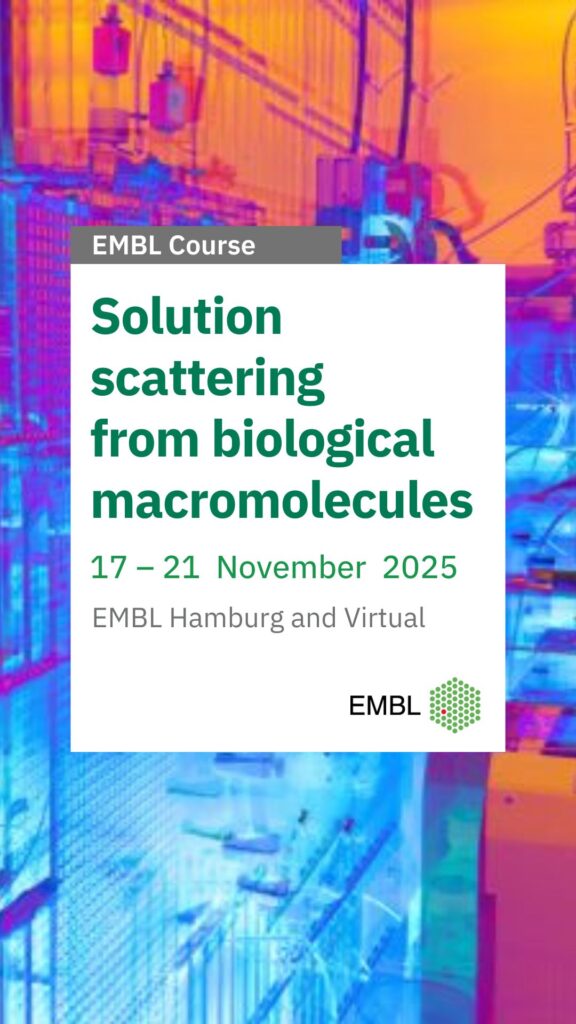
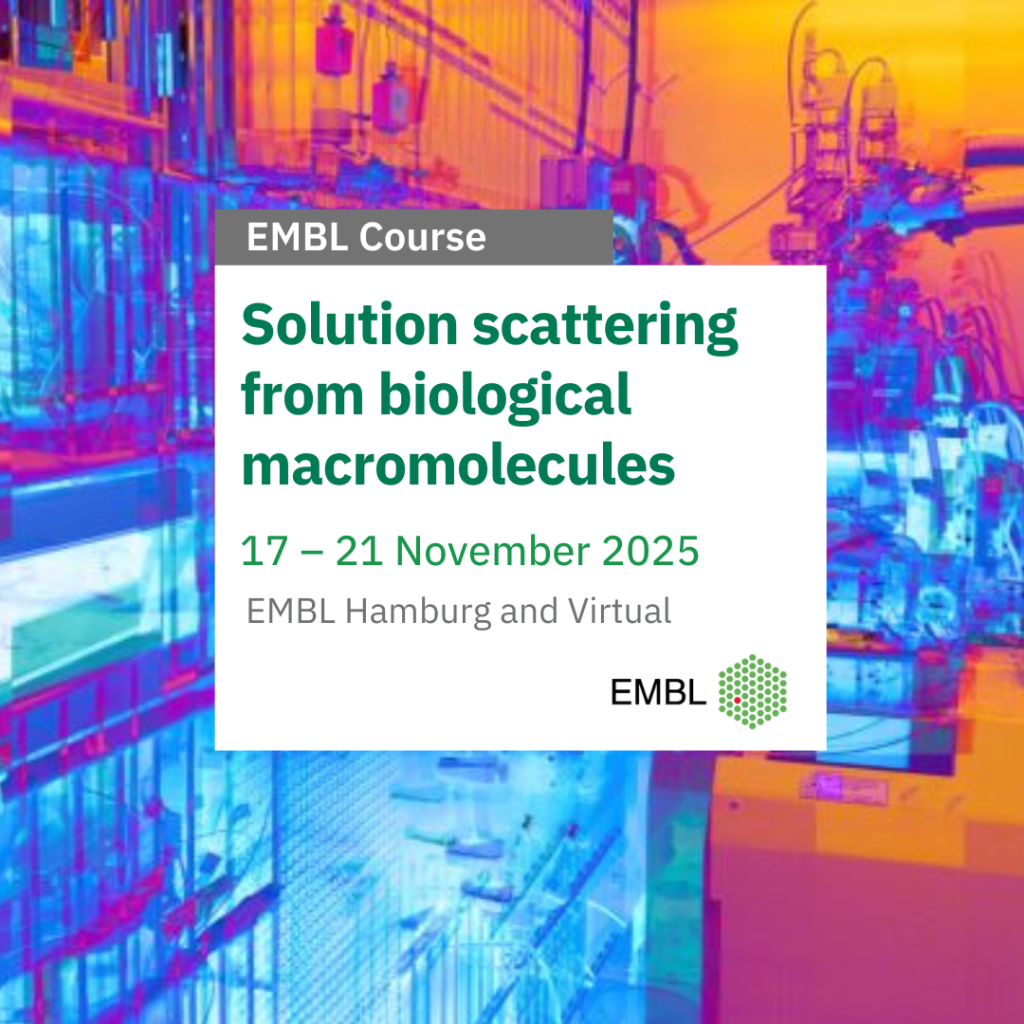
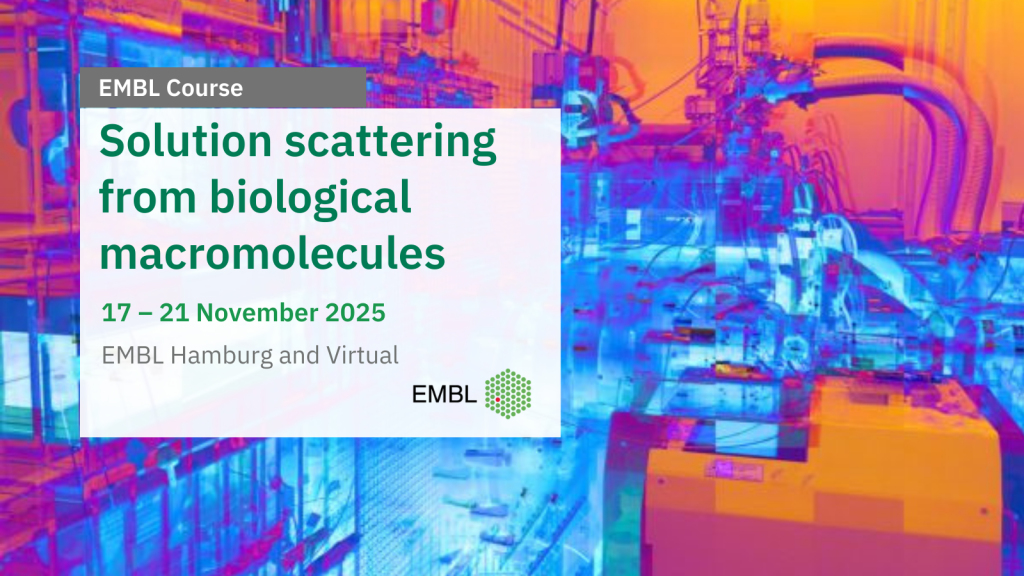
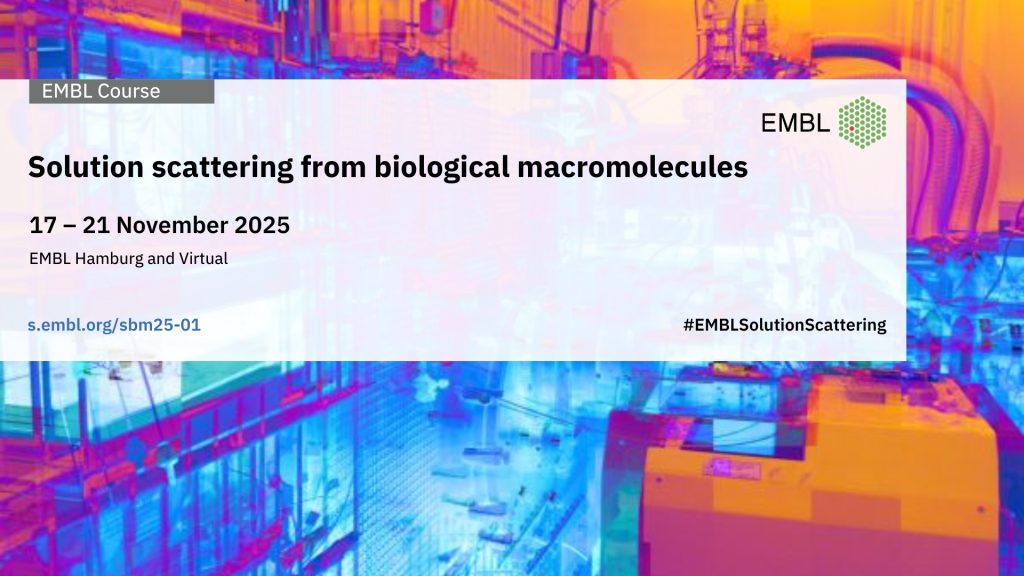
Date: 17 - 21 Nov 2025
Location: EMBL Hamburg and Virtual
Venue: EMBL Hamburg
Deadline(s):
Application: Closed
Organisers:
Contact: Luana Ribeiro